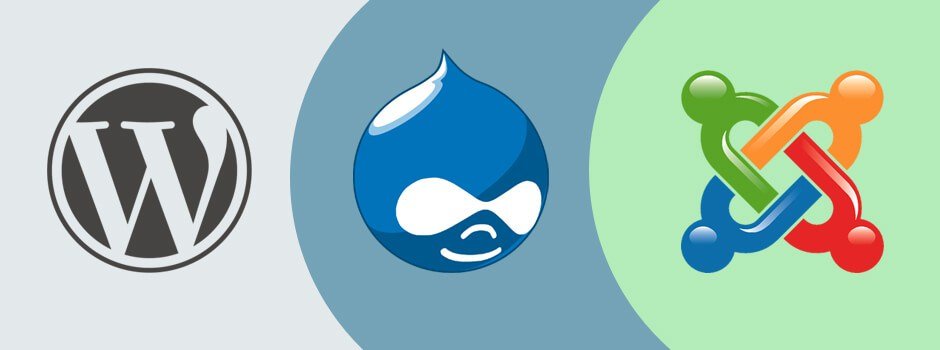CMS Comparison: WordPress vs Joomla vs Drupal

Ignorance of a proper website building tool will lead to the loss of your time and other resources. If you ask for advice from different developers, bloggers or website owners, it is possible you will get different answers.
The content managements systems have brought about a revolution by making website building and maintaining ridiculously simple. The most popular free source Content Management System tool in the market right now are- WordPress, Joomla, and Drupal.
It may look like they have the same general aim but each of these CMS tools are geared towards specific audiences. So before deciding, you should read and find out which CMS tool suits your needs the best.
Overview
Before moving on to the specifics of each CMS tool, let us familiarize ourselves with the core functions of WordPress, Joomla, and Drupal.
All three CMS tools have not gained immense popularity overnight. All of them have been under development for almost 15 years. Drupal hosting is the oldest of the lot, founded on 2000, followed by WordPress, which launched in 2003. Joomla, following the steps of the other two, has been operational since 2005.
You can gauge the immense popularity of these tools by looking at the number of websites hosted by each. WordPress hosts 17.3 million sites, which accounts for 23% of the total websites.
It appeals to the novice and semi-pro bloggers or website owners with its simple interface. Joomla, a CMS tool primarily used by web designers hosts 2.5 million sites, which accounts for 2.8% of the sites. Drupal is used by experienced web developers, hosts 0.74 sites, which accounts for 2.2% of total websites.
Now, let at look at which CMS profile would suit an average user the best. The majority of WordPress users are novice or semi-professional bloggers or site owners. It is such an easy to use CMS tool that just about anyone with a rudimentary knowledge of computers can use it.
The site layout is simple but beautiful, to give an aesthetic and appealing site. Joomla is an ideal choice for web designers working within e-commerce and social networking.
Drupal, with its more sophisticated user interface, is ideally suited for web developers who work on sites requiring complex data management or platforms with multiple users. It is also a choice of many online store owners.
The ease of installation, among other things, is the reason behind the immense popularity of these CMSs. You can download any of these tools for free. And the installation will not take over fifteen minutes.
Adaptability
Another important factor in this race is the flexibility these content management systems provide to the users. User are not limited to a single layout.
WordPress offers straightforward and good looking websites with over 7600 themes to choose. Joomla and Drupal provide complex and professional websites with over 4000 and 2300 themes, respectively.
WordPress offers more than 47,593 plugins, Joomla provides 8,634 and Drupal supports 35,825 modules for different functionalities. There are also a lot of languages to choose from.
Drupal offers more options when talking about the languages, but all CMSs have a language manager or extensions or modules to make custom data translatable.
Let us take a look at the notable clients of these content management systems. WordPress has the honor of providing services to prominent companies like CNN, TED, Forbes, LinkedIn, TechCrunch, and The Wall Street Journal.
Joomla powers the likes of Harvard University, IKEA, Holiday Inn Express, NCA, and eBay, while Drupal is used by many famous websites, including Twitter, Warner Bros, Louvre Museum, The Weather Channel, The Economist, and FOX News.
To measure the immense popularity of these CMS tools, let us take a look at the social media followers. WordPress outstrips others regarding social media followers with 1,056,766 followers on Facebook and 567,000 followers on Twitter.
Joomla has 171,523 Facebook, and 62,000 Twitter followers and Drupal has 88,551 Facebook and 66,100 Twitter followers.
Summing up, the choice of content management system depends completely upon your needs and demands. Take a look at the infographic below to make an informed choice that suits your requirements.
Colin Cieloha Author
Colin Cieloha is an American author and content marketer at Skilled.co. He writes about everything that will draw his attention with a general focus on the trends in the tech world. When he is not writing he is spending his time traveling the globe and snowboarding.


